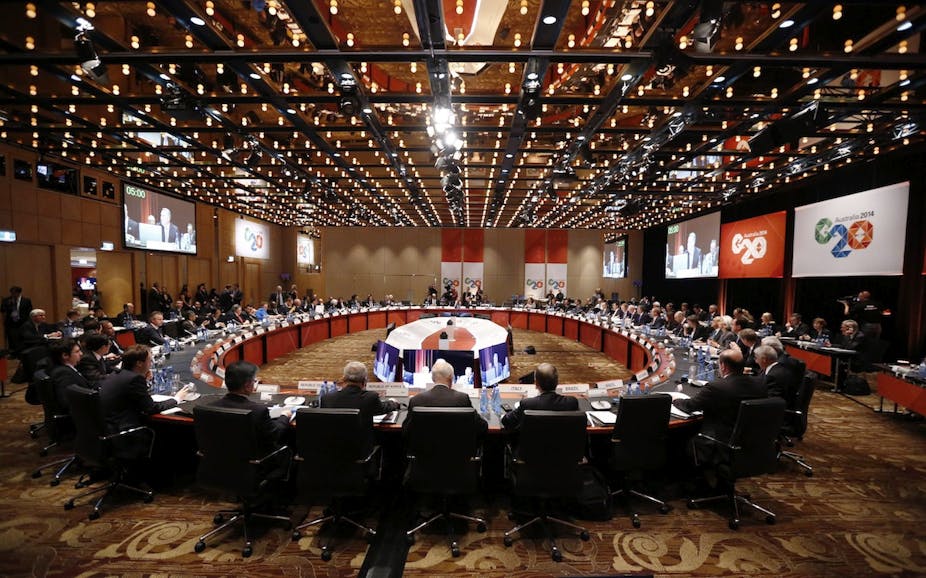When Business Council of Australia chief Jennifer Westacott weighed in on plans for an Australian tax crackdown on multinationals last week, she warned the move could risk competitiveness and lead to companies being double taxed.
Last year the Australian government passed new laws to prevent multinational companies shifting their profits to avoid the payment of corporate tax. They did this as part of general effort amongst Organisation of Economic Cooperation and Development (OECD) countries to target profit shifting by companies who are located in multiple countries.
National and international tax regimes have struggled to keep up with technological developments which have made the global economy increasingly motivated and enabled by structures and assets which are intangible and therefore highly mobile.
As they were developed in a period when most tradeable assets were concrete and easy to locate, the taxation systems of different countries have struggled to always account for these assets. Due to this emerging mobility the issue of taxation cannot be resolved by action from individual countries, a point not lost on the BCA’s Westacott.
More cooperation required
The management of new challenges requires basic agreement and discussion and group forums like the G20 and OECD. Attempting to resolve these problems on an individual level may expose countries to risk of making themselves less competitive for research and development and lucrative for foreign investment.
Having said that, taxation systems must change to adjust to the changing nature of the economy. Countries like Australia, heavily dependent on foreign direct investment, must make cooperation and even coordination a strong priority at regional and global fora.
International companies use several common techniques to pay less tax. While not necessarily illegal, the results of these actions have been met with incredulity. Stories have abounded in recent years of the removal of profits from one country to others with lower taxation. Earlier in 2014 the Australian Financial Review reported that in the previous year US company Apple had sent an estimated $2 billion profit from local customers to a parent company in Ireland, where it pays less tax than in Australia.
Google also has a major international base in Ireland. From Ireland the money travels for free to the Netherlands as it is a member of the EU market. From here Google can use Dutch tax law to send the money on to Bermuda, where it finally declares a profit.
A 2012 parliamentary inquiry in the UK into Starbucks detailed the companies methods, which ultimately led it to claim it was operating in the UK almost always at a loss for more than a decade in spite of having 31% of market share. The exasperation of those questioning Starbucks executives was evident: “If you made losses in the UK over 15 years, why are you still doing business here?”, one MP asked.
Starbucks were using a few rather common methods to reduce the profitability of their UK business, for the benefit of their partner companies elsewhere. One of them including a 6% payment for IP to a Netherlands based company, another was a 20% mark up the Dutch company paid a Swiss company for coffee buying operations. There was also an intercompany loan from Starbucks US requiring the UK company to pay what was described as extraordinarily high interest.
Ultimately, accounting methods such as transfer pricing, intra group licensing and IP based profit shifting are not illegal. A low tax rate may also be attributable to making use of tax reliefs and incentives and promoting research and development.
Different countries are going to have to start talking to each other to prevent profits being moved around. Methods which are best coordinated between groups of countries include combined reporting, which would require these firms to report their profit and loss in each country in which they are operational; or consolidation of the OECD profit splitting approach. The new laws must be in keeping with international trends, or the country that writes them risks losing the business and employment opportunities provided by multinational companies.
In a global economy it is logical that companies would want to structure their business to take advantage of beneficial rules in different countries. And equally each country will want a competitive corporate tax system to attract and retain economic activity. However, the policies of one country should not undermine the policies of another or cause them economic harm. Organisations such as the G20, EU and OECD must enable cooperation to make sure that countries are in agreement with each other’s policies and to pressure those countries whose policies are disadvantaging their neighbours.

